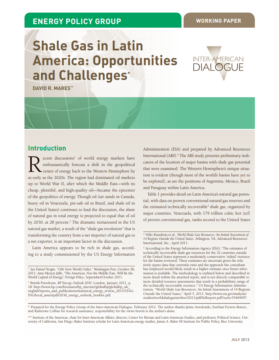
Shale Gas in Latin America
Unless resource nationalism can be made compatible with providing incentives for significant foreign participation, it may be too early to start trumpeting a bonanza for Latin America.
The government of Neuquén—Argentina’s top oil and gas producing province and home to the country’s huge shale play Vaca Muerta—is implementing a detailed plan to eliminate barriers to hydrocarbon development, Governor Omar Gutierrez said at an Inter-American Dialogue panel discussion. This includes facilitating equipment imports by removing customs tariffs, gradually eliminating consumer subsidies for natural gas, and signing a new labor agreement between the provincial government and labor unions.
The Neuquén government’s plan has been successful thus far, according to Gutierrez. Efforts to boost unconventional oil and gas output have helped lower the cost of production: development costs have dropped by half from $15 million two years ago to about $7.5 million today. Shale gas now represents 50 percent of total gas production in the Neuquén basin, a 30 percent increase from two years ago.
According to @OmarGutierrezOk, 55% of gas produced in Argentina comes from Neuquén as well as over 90% of the country’s oil. #DialogueEnergy pic.twitter.com/rVhizflMxy
— The Inter-American Dialogue (@The_Dialogue) March 27, 2018
2017 also saw the awarding of seven new concessions for unconventional oil and gas production in the Vaca Muerta shale deposit, bringing the total number of concessions to 26. These 26 concessions are spread out across 6,000 km2, 20 percent of Vaca Muerta’s 30,000 km2. Overall, the total investment over 35 years for the 26 concessions is estimated to be $135 billion. Of these 26 concessions, the governor also expects three or four concessions to move from the pilot phase to commercial development in 2018.
The large investment in unconventionals will solidify Neuquén’s role as a strategic source of production for Argentina’s oil and gas sector, Gutierrez said. Neuquén currently accounts for approximately 21 to 22 percent of national oil production and some 55 percent of national gas production.
But while higher investment is expected to increase Neuquén’s oil and gas production, there are still several challenges to developing shale reserves. These challenges include infrastructure development, the adoption of natural gas market prices, local urban development and local community support, according to Paola Carvajal, Principal at Arthur D. Little. Carvajal highlighted the importance of ensuring that future project development goes hand-in-hand with open communication and benefits to local communities, as well as compliance with international environmental policies. The influx of workers to project sites will require urban planning strategy designed to meet growing demand for social services.
Moving forward, Governor Gutierrez highlighted the need for constructive and continuous dialogue. While satisfied with the amount of progress made in the past two years, Governor Gutierrez recognized that plans have to be fluid in order to meet the consistently evolving demands of both the oil and gas sector and local communities.
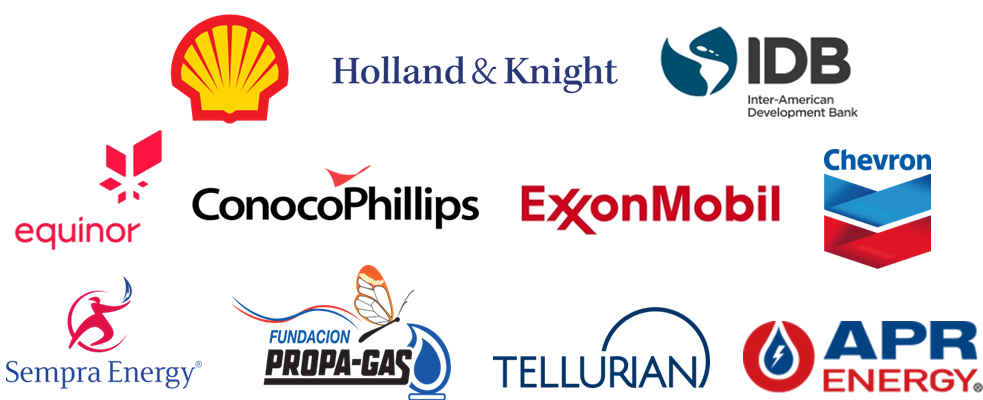
Unless resource nationalism can be made compatible with providing incentives for significant foreign participation, it may be too early to start trumpeting a bonanza for Latin America.
Natural gas has the potential to reduce Central America’s high energy costs and mitigate its dependence on imported oil.
The results of Mexico’s energy reforms may fall well short of government promises and public expectations.
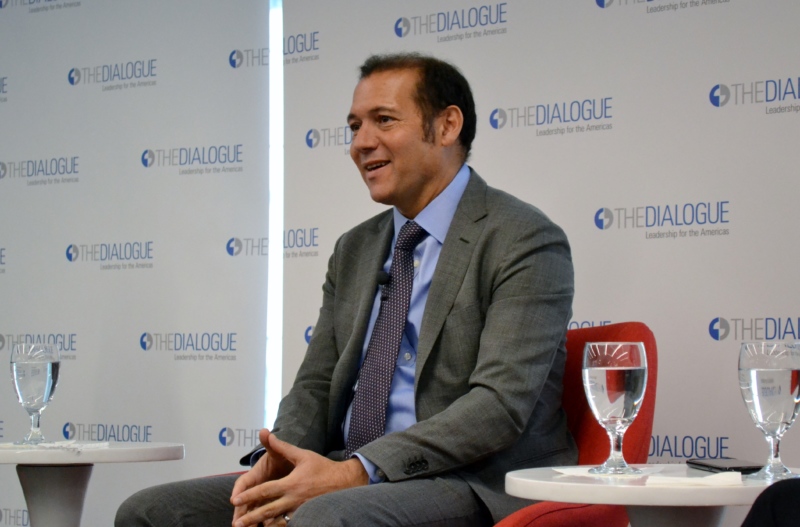 Irene Estefanía González / Inter-American Dialogue
Irene Estefanía González / Inter-American Dialogue
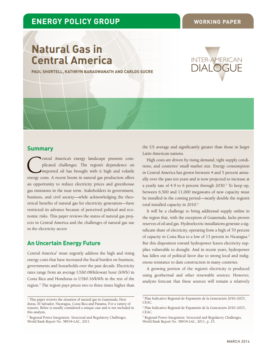
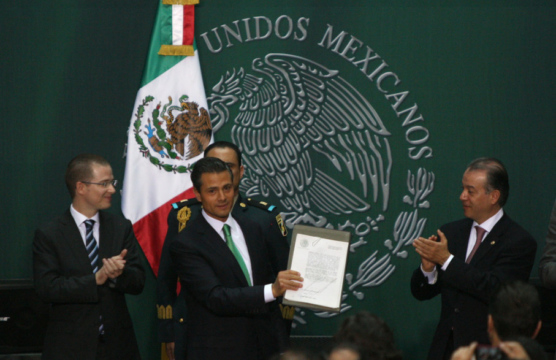 Video
Video